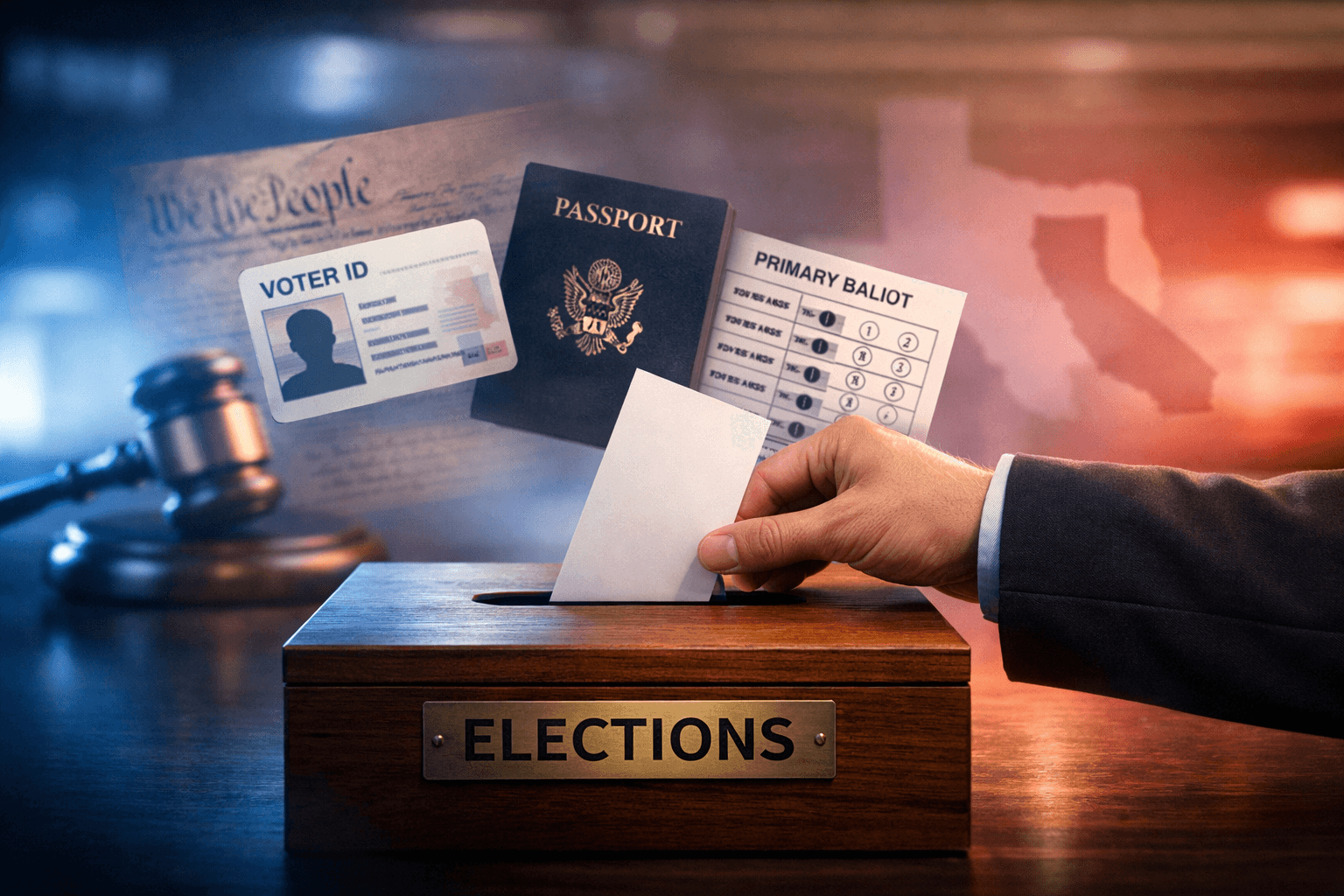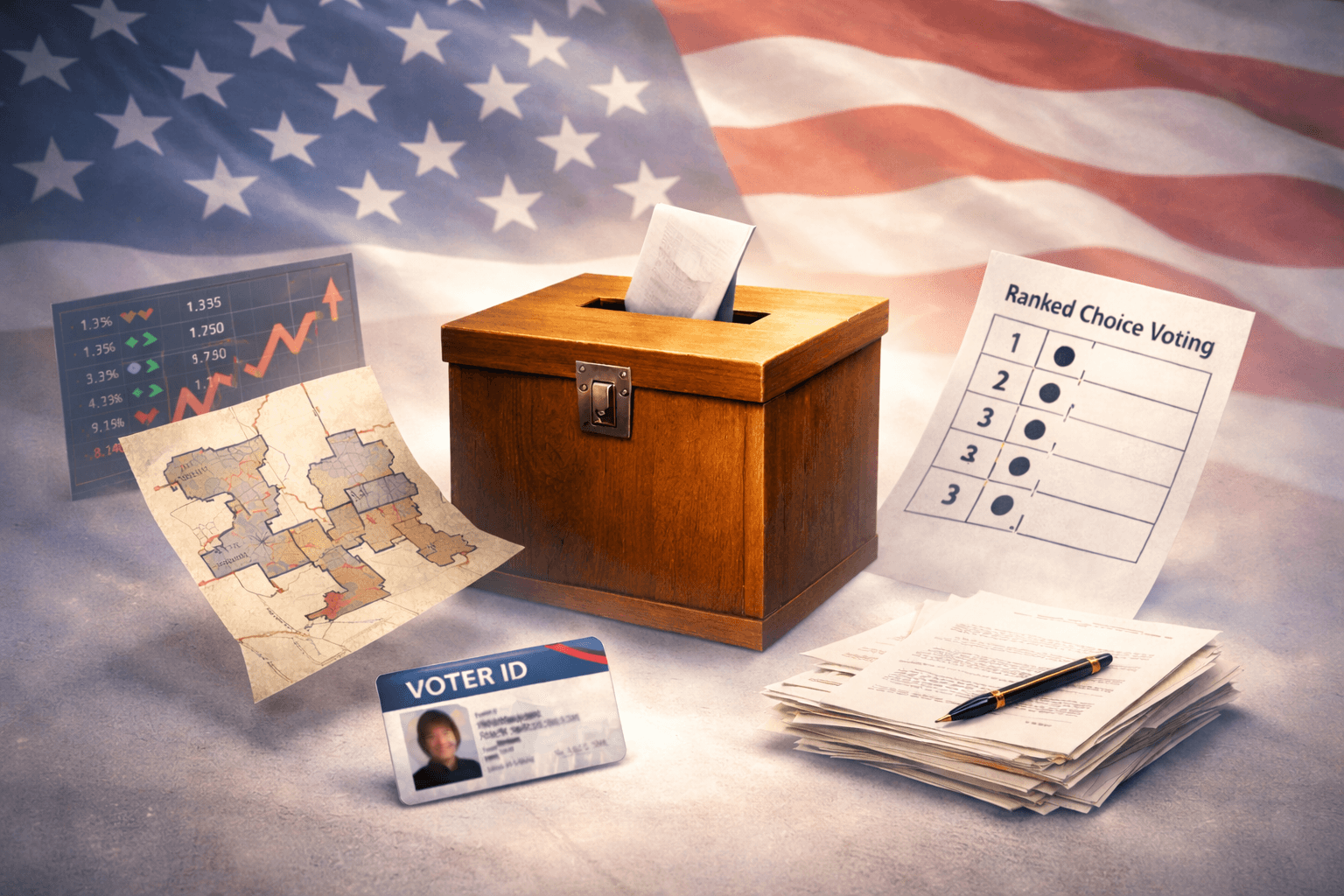Arizona's Make Elections Fair Act: It's Not About Ranked Choice Voting

The Arizona Free Enterprise Club filed a lawsuit challenging the constitutionality of a ballot initiative that would require state lawmakers to adopt a primary system that allows all voters and candidates, regardless of party, to participate on a single ballot.
The organization asserts that the initiative, sponsored by Make Elections Fair AZ, amends the constitution in several distinct ways and thus violates the state’s single-subject and separate amendment rule – but it also gets plenty of things wrong about the initiative.
The purpose of the Make Elections Fair Arizona Act, the initiative being challenged, is to level the playing field in elections for all candidates and voters in a manner that is free of the controlling influence of partisan politics. This is stated under its “Purpose and Intent.”
“To accomplish these goals, this Constitutional Amendment creates a primary system in which people may vote for the candidate of their choice, regardless of the political party of the voter or the candidate," the initiative states.
ALSO READ: Arizona Initiative: Parties Can Either Accept Open Primaries or Pay for Them
It is first and foremost a primary reform initiative. However, the Arizona Free Enterprise Club claims in its lawsuit that the initiative “contains distinctly different topics and amends multiple sections of the Arizona constitution,” and thus violates the state’s Separate Amendment Rule.
The lawsuit points to certain changes that could be made to the general election, like the adoption of ranked choice voting (RCV) – but the addition of RCV is purely hypothetical.
The initiative stipulates that the election model used is up to the legislature.
The most important requirement is that lawmakers have to use a nonpartisan primary system. The initiative allows for flexibility when it comes to the general election
State lawmakers could choose to go with a Top Two system, like in California, for elections that elect only one candidate. In this case, the winner of the general election is guaranteed to have a majority of the vote because there are only two candidates.
Or, they could go with a Top Four system like in Alaska. In the event 3 or more candidates advance to the general election then the initiative requires a ranking method for voters to use to determine a majority winner.
This is an if. It all comes down to the legislature and if the legislature fails to provide a nonpartisan election system, it would be the responsibility of the state’s chief elections administrator, the secretary of state, to decide what election model is best to use.
If state lawmakers object to a ranking method, they can enact a Top Two system – but the model adopted should be one built on equal treatment of voters and candidates (who would have the same signature requirements).
That’s the point. And it starts with primary elections.
The Make Elections Fair Act would amend the language in various parts of a single Article in the Arizona Constitution, Article VII, and if adopted would apply to state elections that occur after July 1, 2026.
The lawsuit filed by the Arizona Free Enterprise Club comes after the Arizona Legislative Council adopted language for the initiative for voter pamphlets that intentionally focuses on ranked choice voting, which again is not guaranteed or required.
"This initiative is arguably the most important reform in our lifetime," said Sarah Smallhouse, chair of Make Elections Fair, in an interview for Public News Service. "It's time to do right by Arizona. It's time to start fixing things. It's time to make elections fair."
Make Elections Fair AZ suggested changes to the language to ensure that it was not confusing to voters. The legislative council, however, rejected them – leading to Make Elections Fair to file its own lawsuit against state lawmakers.
Arizona Attorney General Kris Maye believes the partisan legislative council is improperly trying to influence the vote on the Make Elections Fair Act and other initiatives. A Maricopa County superior court will consider and rule on the language challenge
 Shawn Griffiths
Shawn Griffiths






